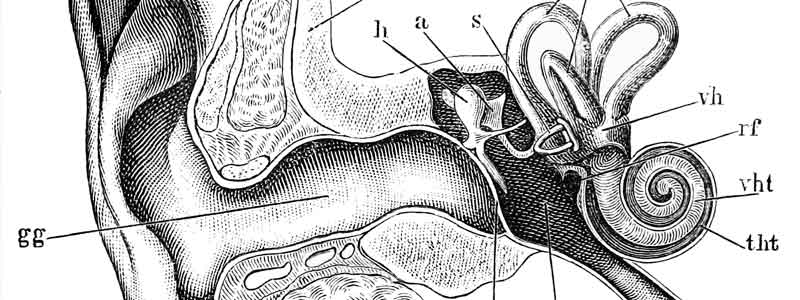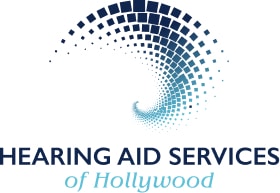Your hearing ability is the direct result of the interaction between two systems: the ears and the brain.

Your ears are encoding devices. Thousands of microscopic sensory nerves sense sounds and turn these sounds into electrical signals. These signals are decoded and given meaning by the brain.
Many who have long-standing hearing losses perceive sound differently than those who have short-term hearing losses. When sounds are reintroduced through the use of hearing aids, they may have no meaning or appear to be distorted. Sounds that haven’t been perceived for years appear to sound tinny or scratchy. The perception of one’s own voice will also be altered.
The good news is that your ability likely will return once appropriate hearing instruments are fitted and used. The recovery time varies, but maximum relearning usually occurs within three to six months.
I am reminded of one patient who spoke in a husky, low voice similar to Lauren Bacall. When she was fitted with her hearing aids she commented that she did not like the sound of her own voice. Her husband remarked that she had been speaking that way for years. The patient was shocked that he had not mentioned this to her before. After a few weeks of using hearing instruments, she learned to monitor loudness and breath flow to achieve a smoother and more pleasant voice quality.
Now, more than ever, fitting an individual with new hearing instruments is a blend of science and art. At Hearing Aid Services of Hollywood, we sift through all the diverse technologies in the hearing aid world and select the one that will be the most beneficial for you. Once we have determined the useful range of your hearing, we will select a processor that will best meet your needs.
Your degree of experience with hearing instruments must also be taken into account before adjusting your new units. New users often must be eased back into the world of hearing by adjusting the units in small increments until a 100% correction level is reached. Long-time hearing aid users are usually given full correction at the initial fitting since they have already adapted to hearing the sounds of the world.
Whether you are a new or experienced hearing instrument user, you can feel secure in knowing that we will devote all of the time necessary to meet your particular hearing correction needs.
Improving Your Cognitive Function
It controls our breathing, heartbeat, movements and perceptions. It guides our emotions and thinking. We couldn’t live without it, yet we hardly ever acknowledge its importance. This essential organ is the human brain.
Your Brain and Hearing Loss

In our daily activities, the brain acts as a conductor, gathering and sorting through millions of inputs. Listening is one important task it performs, but listening is not as simple as it seems. Cognition (thinking), memory, attention and hearing acuity all interact to accomplish the goal of “understanding” what we hear. Hearing loss interferes with the flow of information to the auditory centers of the brain because the signals are absent or distorted. When the brain fails to receive these auditory inputs, it loses its ability to make sense of them. Like the “use it or lose it” philosophy we’ve heard from those who encourage us to exercise our muscles, the brain will also “lose it” if the sound input fails to arrive as anticipated. Hearing instruments help to restore the auditory signal to the brain, preserving brain function. However, new studies suggest that we can maintain a healthy brain throughout our lifespan by going one step further.
The Value of New Experiences and New Learning Challenges
As we age, our cognitive functioning slows and becomes less efficient. The trend appears to be irreversible, but studies also indicate that the pace of cognitive decline can be decreased. Scientists have discovered that new life experiences and new learning challenges will stimulate the brain to create new neural pathways. These neural processes that transform the brain are active throughout the life span, but routinely going about daily living in the same way we’ve always done it won’t create the change. We have to challenge ourselves to develop thinking skills that push us beyond what is comfortable, easy and familiar.
Boosting Your Cognitive Abilities
I recently attended a workshop that reviewed two interactive software programs created to boost cognitive abilities. They are called LACE (Listening and Communication Enhancement) and Lumosity. Each program designs an individualized curriculum of mental exercises based on an initial assessment of ability. The difficulty of the tasks presented is gradually increased, so the user is challenged to continually improve performance.
LACE (www.neurotone.com) was developed to train the brain to understand speech in difficult listening situations, such as a noisy restaurant. Exercises improve processing speed and auditory working memory. With training, the listener is better equipped to fill in the gaps when noise is present. The result is enhanced comprehension and communication.
Lumosity (www.lumosity.com) was created by a team of neuroscientists to develop the cognitive abilities of memory, attention, speed, flexibility and problem solving. The tasks included in this program target both visual and auditory skills through a range of challenging mental exercises personalized for each user.
LACE is available in three versions, with prices ranging from .00 to .00. There is a brief demonstration program available for download, so you can try before you buy.
Lumosity costs .00 per month and can be accessed via any web-enabled computer or Apple device running iOS. You can begin your assessment/training at no cost. The free trial expires after your first session with the program.
Both programs are worth exploring if you have an interest in challenging yourself with new experiences designed to improve brain functioning.
Call Hearing Aid Services of Hollywood at (323) 463-7109 for more information or to schedule your appointment today.

